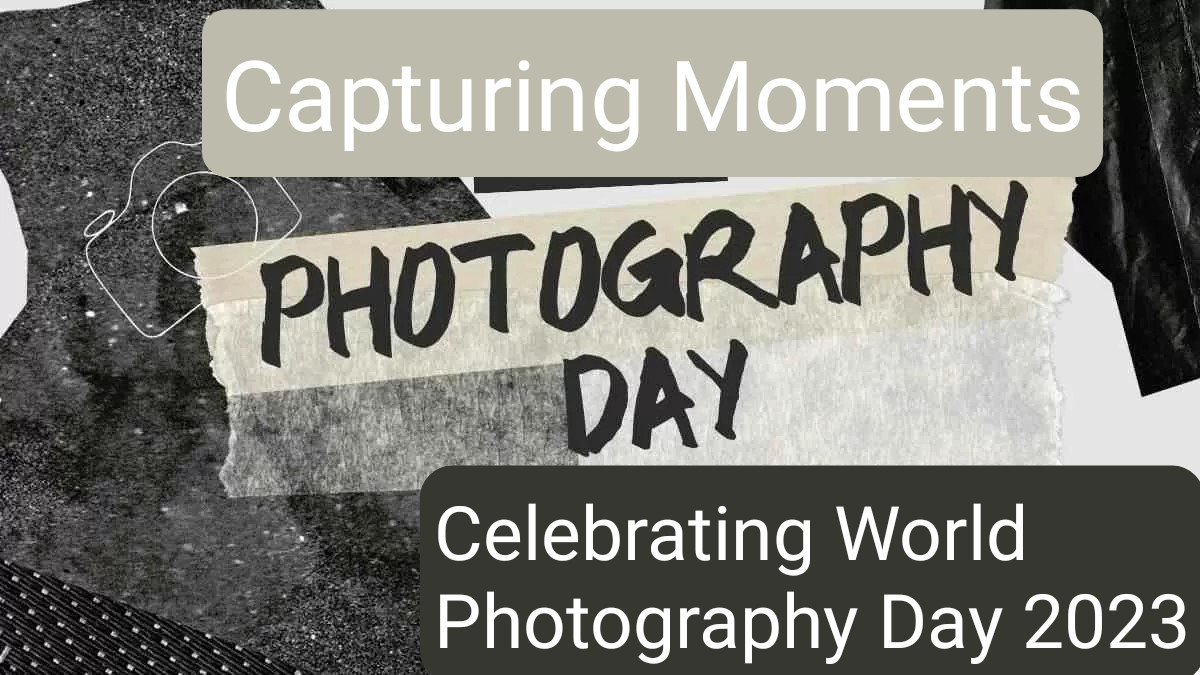World Photography Day: A Celebration of Captured Moments
World Photography Day, celebrated annually on August 19th, marks the anniversary of the invention of photography, a medium that has revolutionized how we capture and share moments. This date officially commemorates the presentation of the daguerreotype, the first photographic process developed by Louis Daguerre in France in 1839.
The invention of the daguerreotype, a process that produced a single, unique image on a silver-plated copper plate, was a revolutionary achievement. It opened up a new world of possibilities, allowing individuals to capture and preserve moments in time, forever altering the way we perceive and interact with the world around us. The invention was made possible by Daguerre's collaboration with Joseph Nicéphore Niépce, who had previously developed the first successful photographic process, but which required long exposure times and resulted in images that were often faint and lacking in detail. Daguerre's invention of the daguerreotype dramatically improved upon Niépce's process, making it much more practical and accessible to the public.
The Evolution of Photography: From Complex to Instantaneous
The invention of the daguerreotype marked the beginning of a rapid evolution in photography. Over the following decades, a series of innovations led to the development of new photographic processes, such as the calotype, which allowed for multiple copies of an image to be made. These innovations marked key milestones in the evolution of photography, transitioning it from a complex and expensive process to a commonplace and instantaneous practice. These advancements also led to a wider adoption of photography, making it accessible to a broader range of people, including professionals and amateurs alike.
The Impact of Photography: Documenting Reality and History
Photography has played a pivotal role in documenting social and historical reality. It offers a window into events, cultures, and eras otherwise inaccessible or forgotten. With over 1.4 billion photos taken daily across the globe, its influence is undeniable. Photography has become an integral part of our daily lives, capturing everything from our everyday moments to historic events. It serves as a powerful tool for communication, storytelling, and historical documentation.
The Digital Revolution in Photography: New Frontiers in Capture and Sharing
The digital age has transformed photography, making it more versatile and integrated into our lives. Technological advances have enabled significant improvements in the quality and accessibility of photographic equipment. The advent of digital cameras and smartphones has democratized photography, putting the power of image capture in the hands of millions of people around the world. This accessibility has led to an explosion in the number of photographs taken and shared, resulting in a vast digital archive of visual information that continues to grow exponentially.
Challenges in the Digital Age: Authenticity and Copyright
Despite its numerous advantages, photography faces significant challenges in the digital age, particularly in terms of copyright and the preservation of authenticity. The ease with which digital images can be manipulated and disseminated has raised concerns about the veracity of images and the potential for misuse. This has led to increasing efforts to develop technologies and practices that can help ensure the authenticity and integrity of digital images.
The Future of Photography: Adapting to New Technologies
World Photography Day on August 19, 2024, celebrates not only the history and advancements of this medium but also emphasizes its essential role in preserving our cultural and historical heritage. As a powerful tool for communication and expression, photography will continue to evolve, adapting to new technologies and remaining a vital pillar of global visual culture. The future of photography is likely to be shaped by emerging technologies such as artificial intelligence, augmented reality, and virtual reality, which will open up new possibilities for image capture, creation, and sharing.
Final Thoughts: Photography's Enduring Legacy
From its humble beginnings as a complex and time-consuming process to its current status as a ubiquitous and powerful tool for communication and expression, photography has come a long way. Its enduring legacy lies in its ability to capture moments, tell stories, and preserve history. Whether captured with a simple smartphone or a professional-grade camera, a photograph can encapsulate a fleeting moment in time, evoking memories and emotions that can last a lifetime. As we celebrate World Photography Day, let us appreciate the power of this art form to connect us to the past, present, and future.


















